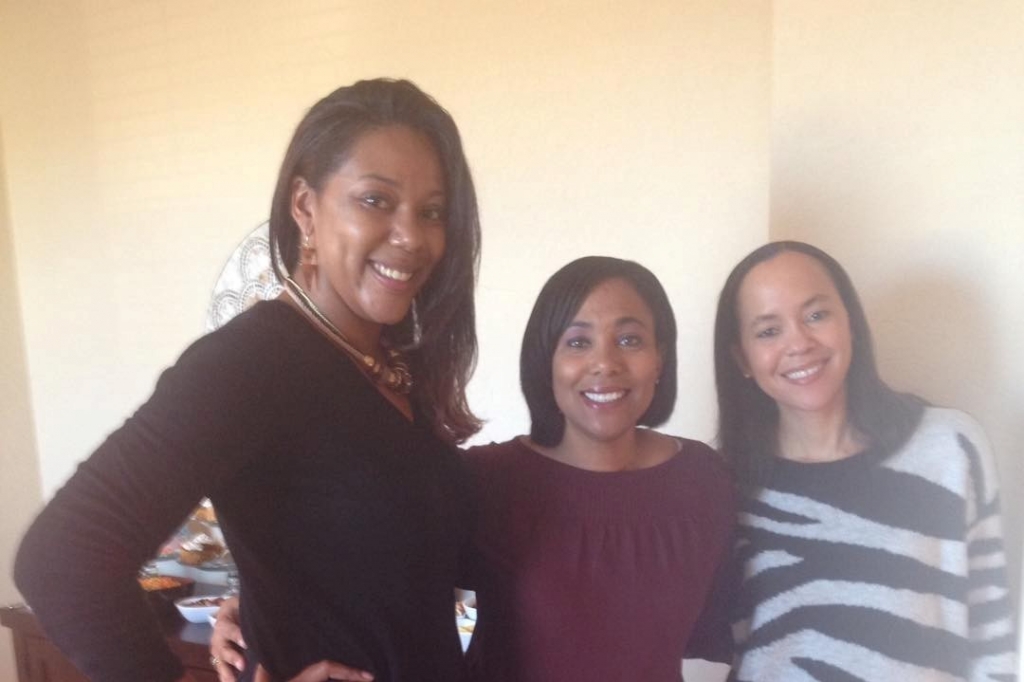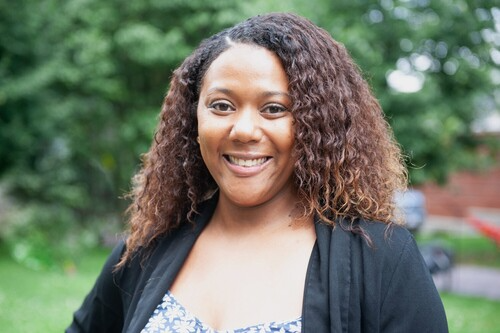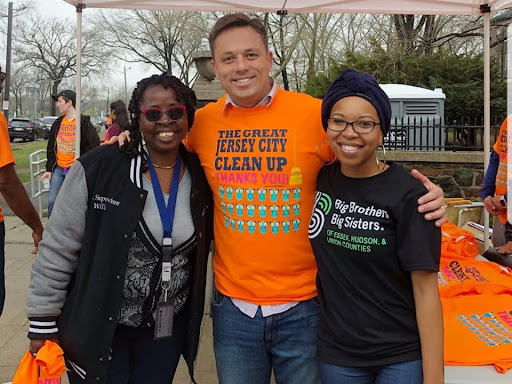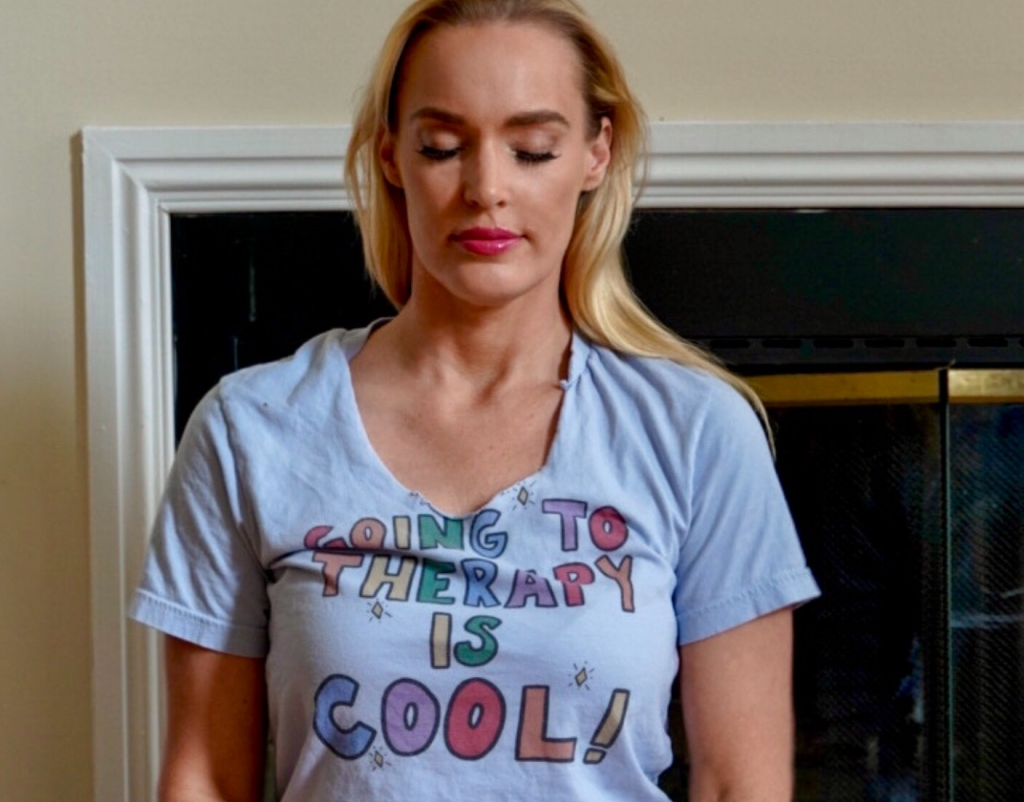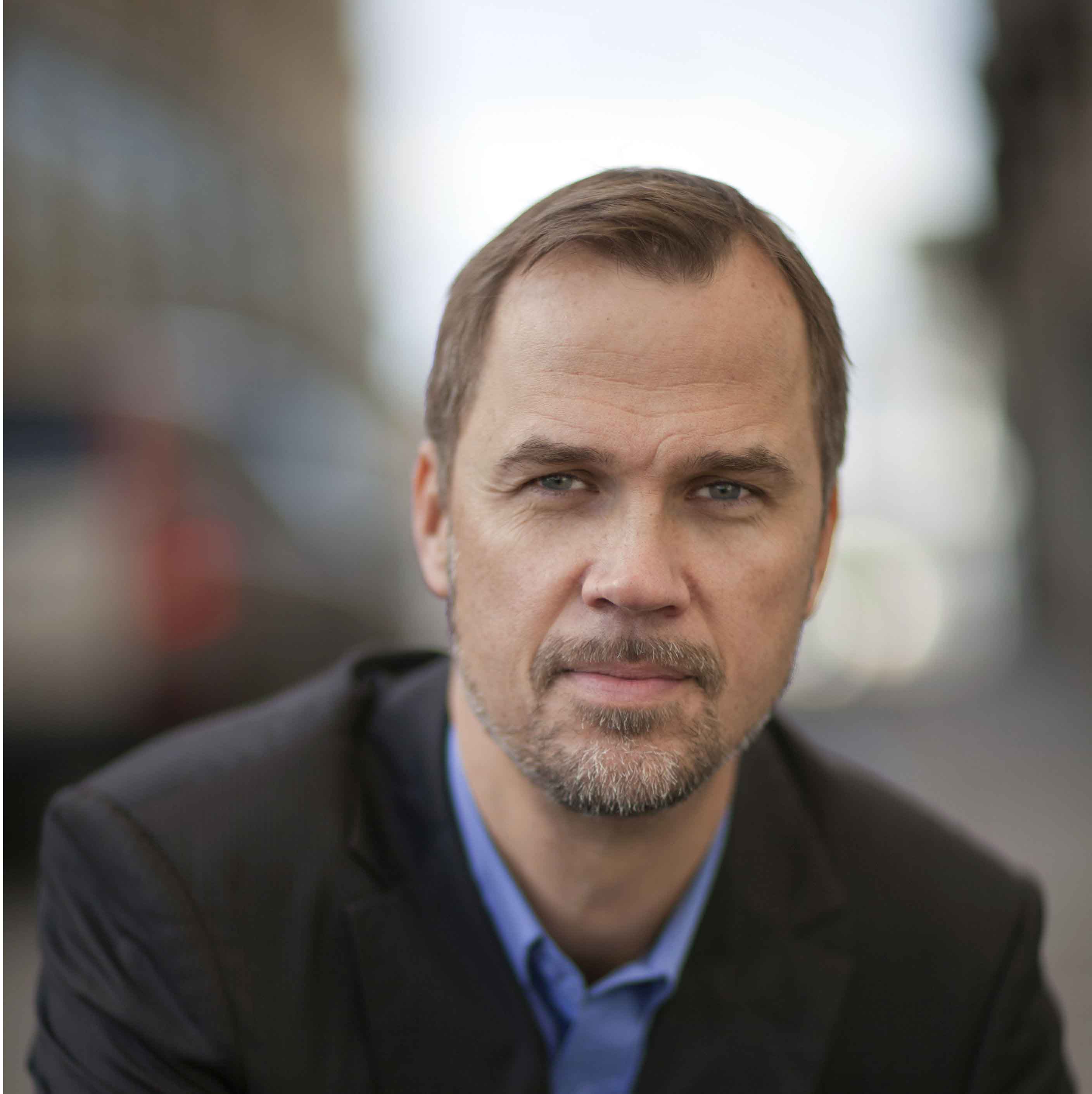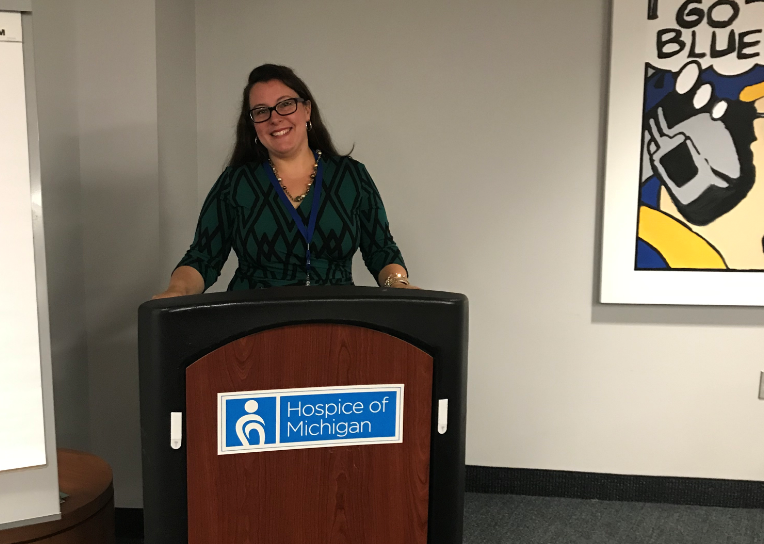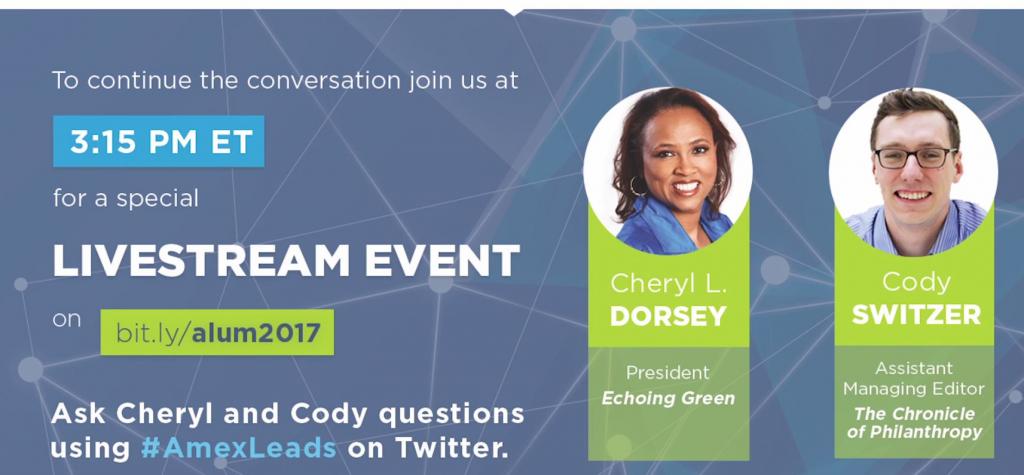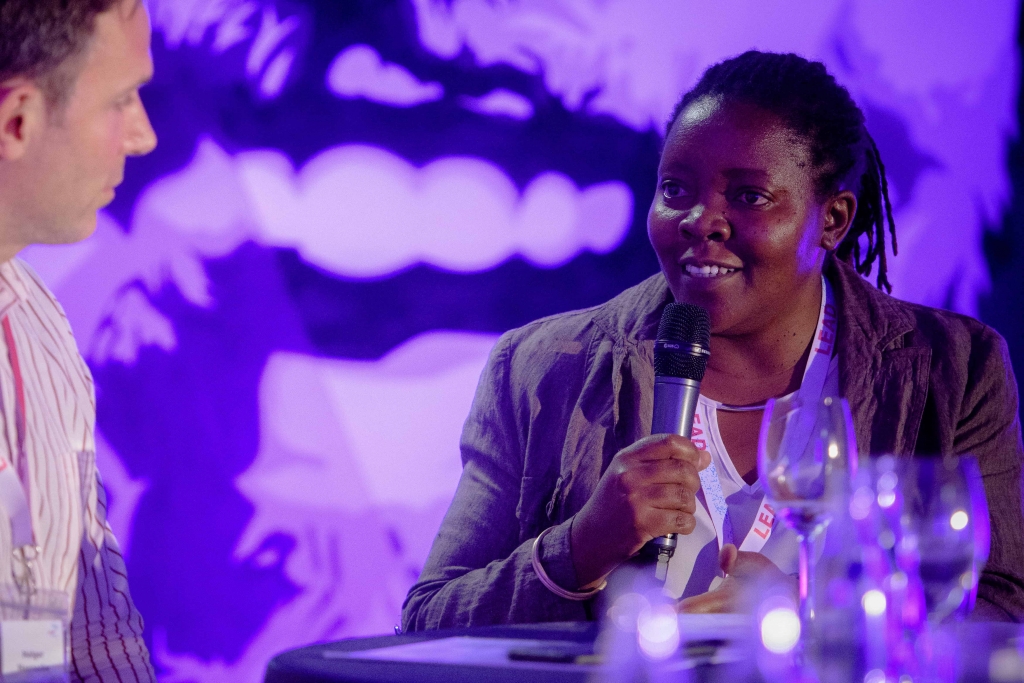
Elizabeth Maloba is an expert facilitator who focuses on organizational planning, business model creation and leadership. She has worked with over 20 organizations in more than 22 African states, supporting them to make decisions, solve problems, exchange ideas and information, and learn. An entrepreneur, angel investor and business mentor, Elizabeth is also a mother and avid camper. She is an alum of the LEAD Academy Summer School in Berlin, a five-day intensive training for international social purpose leaders. She shared her leadership journey and insights with us.
Q: Why did you decide to go into the nonprofit/social purpose sector?
A: A good friend of mine once paraphrased Shakespeare and said, “Some people are born leaders, some achieve leadership, and some have leadership thrust upon them.” I definitely fall in the last category. When I left high school I wanted to be a successful entrepreneur, but the word was not so well understood back then. My career guidance teacher sent me straight to the school of architecture –architects were the only people she knew who were self-employed. Many years later I look back and realize that what I do now did not exist as a defined profession when I graduated. I am a process facilitator: I enable people to interact productively with each other, both in a forum or workshop context, and in planning meetings and strategy development sessions. I took the critical skills of creative thinking and communicating abstract concepts from my architecture course, and found myself in a role that is best described as ‘designing the conversations.’ I found that social entrepreneurs increasingly need my skill sets to be able to set their strategic goals and break them into actionable steps. Over time, I increasingly found myself addressing challenges such as youth unemployment, access to healthcare, access to water and sanitation among others. In other words, my work found me.
Q: What keeps you here?
A: I am directly motivated by seeing the results of collaborative efforts translate into a real solution– particularly, working with others to develop solutions that make a difference in the lives of people. I enjoy every aspect of co-creative work. For every solution that I have been involved in co-creating, we had several different ideas and ways to tackle the challenge and we all worked together to refine those into one final option. Being open to what others have to say and seeing new and exciting ways to think creatively keeps me interested in the work I do, and drives me to further my own education so I can continue to contribute positively to the collective efforts in which I am involved.
Q: What is your favorite thing about your work day?
A: My favorite thing in my work day is when I start to work to create an environment that is a safe space for creative thinking and collaboration to occur. It is a point in time when nothing exists in the space before the team, except possibilities. To paraphrase a friend: this is the moment when you get to look into the vast expanse ahead and determine which way you will be going and by what means. It is a point in time when both creative thinking and organizational thinking take place. I love the duality of that space.
“I am a ‘recovering teller.’ I like to be in control and solely responsible for a result. And yet business leadership is about achieving results through people.”
Q: What impact or success are you most proud of?
A: I worked on a process to support farmers to commercialize their production by learning about of the crop production requirements and their ability to calculate production costs and develop a system to ‘produce to cost.’ I worked with a diverse team that included agronomists and financial experts to develop an appropriate crop production and marketing system that increased productivity and profitability. At the same time, we worked with a team of information and communications technology (ICT) experts to build an application that enabled the organization I worked for to provide extension services to farmers at a reduced cost.
Q: We all have our “failing forward” moments. Can you share a failure that in retrospect led to growth or learning?
A: I started a retail business and spent three years growing it from an initial back-of-the-envelope idea to an operation that had three outlets, a decent revenue, and a respectable client base. In the fourth year I hit an entrepreneurial bump: there was a downturn in the economy, and I struggled to meet my operating costs and began to accumulate debts that I could not figure out how to settle. I was so stressed in that situation that I closed the retail outlets and wound up the business. Looking back, I realize that it was not just an economic downturn that led to my financial woes. I had failed to recognize that I was not only in the retail business but I was also building a supply chain. I therefore did not structure my operational plans, my financial management plans, and my marketing plans appropriately. I struggled to manage cash flow because I was using a downstream retail management model on a business that integrated both downstream and upstream operations. I think about this every time I work in a situation that seems to lack sufficient resources–I look closer at the challenge to figure out. Is it just the resources that are lacking, or is there a cognitive failure that aggravates the resource deficiency?
Q: In a few words, what most gets in the way of your ability to be the leader you want to be?
A: I like to say I am a ‘recovering teller.’ In other words I like to be in control, to be listened to, and to be solely responsible for a result. And yet business leadership is about achieving results through people. I am learning to focus more on the people and less on the results, to spend more time building relationships and less time developing plans, to let go more and trust others. I invest a lot in developing my ability to be mindful, to be aware of the environment I create and the energy I bring to it. I am working on building my capacity to enjoy the journey and let the destination reveal itself.
Q: What’s your favorite tech tool for the work?
A: My smartphone, mobile data and the apps that enable me to work collaboratively across the globe: Slack, Zoom, Skype, Google Drive and Doodle.
Q: How did your experience with the LEAD Summer Academy influence your approach as a leader?
A: The content of the leadership course tied directly into the work I am doing as a facilitator, as an entrepreneur and as a business coach. We learned that leaders in the digital age need to be able to process more information at a faster pace, engage an active media landscape and stakeholders, and make decisions faster. To do this leaders have the possibility of taking up one or more of eight possible leadership roles that were covered in the course. For example in my current project–considering the possibility of setting up an accelerator for social enterprises within a highly competitive environment–I am able to wear the hats of the ‘seismologist,’ the ‘artistic director’ and the ‘landscape architect’ to evaluate possible alternative scenarios and determine a course of action.
Q: What was your greatest take away from the experience?
A: Leadership in an increasingly turbulent and rapidly changing context requires that leaders develop new leadership competencies based in complexity concepts.
Q: What has been your biggest area of growth as a leader in the past year or two?
A: My increased understanding of complexity theory has enabled me to focus on implementing adaptive approaches that have enabled me to be more effective, inspire others, develop skills within teams, lead change and navigate stakeholder relationships better.
Q: Please share your greatest piece of leadership advice for your social sector peers across the world.
A: I will borrow from my favorite Rudyard Kipling poem, If:
If you can meet with Triumph and Disaster, And treat those two impostors just the same…
Q: Three words: If you had to name three specific abilities, skills or mindsets that you think every 21st century nonprofit leader needs, what would they be?
A: Objectives, Strategy and Tactics – see the big picture and implement in bite size morsels to move the organization forward.
Q: What is something that people don’t know about you from reading your resume?
A: I love the outdoors. My second job out of high school was as an outdoor leadership instructor for Outward Bound and for National Outdoor Leadership School. The outdoors taught me to stay calm during stressful situations, figure out a solution and then act. This characteristic is invaluable to my work. After all, obstacles are inevitable, especially in the social entrepreneurship space.
__
Elizabeth is an alum of the LEAD Academy Summer School in Berlin, a five-day intensive training for international social purpose leaders. Learn more about the LEAD Summer School program here: https://www.lead.ngo/programs/summer-school.html



